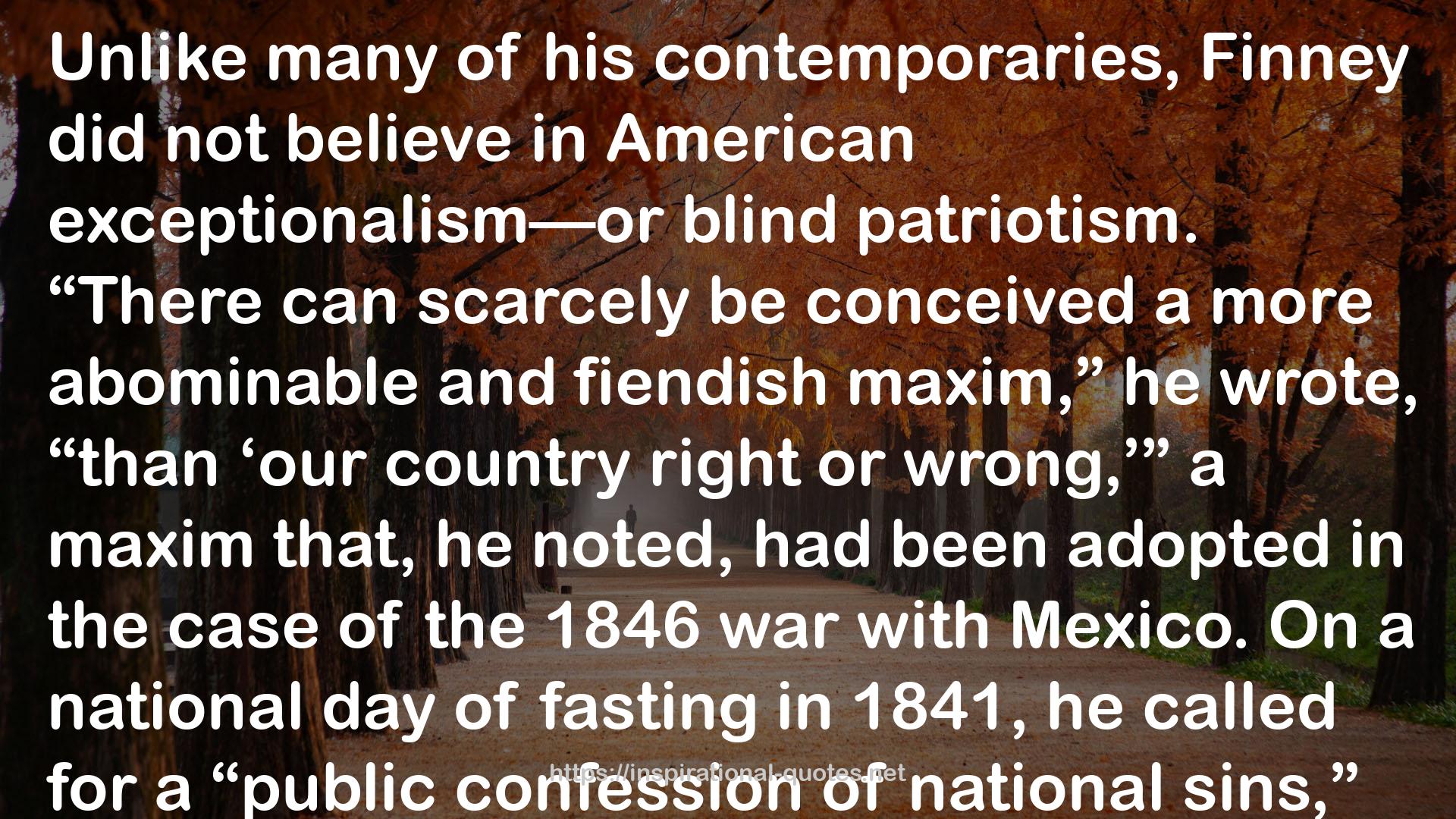" Unlike many of his contemporaries, Finney did not believe in American exceptionalism—or blind patriotism. “There can scarcely be conceived a more abominable and fiendish maxim,” he wrote, “than ‘our country right or wrong,’” a maxim that, he noted, had been adopted in the case of the 1846 war with Mexico. On a national day of fasting in 1841, he called for a “public confession of national sins,” identifying those he found particularly egregious. One of them was “the outrageous injustice with which this nation has treated the aborigines in this country.” (He was referring in particular to the expulsion of the Cherokees from Georgia in 1838–39.) Another was of course slavery. By 1846 he had confronted the argument that slavery was a lesser evil than the division of the Union. “A nation,” he exclaimed, “who have drawn the sword and bathed in blood in defense of the principle that all men have an inalienable right to liberty, that they are born free and equal. Such a nation… standing with its proud foot on the neck of three millions of crushed and prostrate slaves! Oh horrible! This is less an evil to the world than emancipation, or even than the dismemberment of our hypocritical union! Oh, shame, where is thy blush?” Finney, needless to say, supported war with the South when it came. "
― Walter Isaacson , Profiles in Leadership: Historians on the Elusive Quality of Greatness
